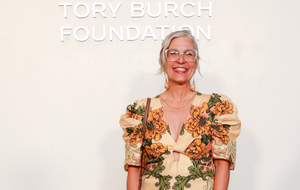If you were born with ovaries and you’re over the age of thirty, chances are you’ve noticed your relationship with alcohol… shifted. The trusty glass of wine that once felt like a lullaby can suddenly behave like a megaphone—blaring hot flashes, 2 a.m. wake-ups, and next-day brain fog. Same drink, different body.
As Dr. Mary Claire Haver puts it,
“If I’m choosing to have a drink, I am choosing not to sleep.”
That line hits like truth serum. It’s simple, a little sobering (ha!), and instantly relatable for anyone who’s watched their sleep quality tank after what used to be a harmless pour.
I hear it from our community all the time, so I pulled in a few voices I trust to help connect the dots—clinicians and menopause advocates who live at the intersection of hormones, brain health, and real life.
What clinicians see on the ground
Dr. Mary Claire Haver (OB-GYN and founder of The Pause Life) is refreshingly direct about alcohol in midlife:
“Limit alcohol consumption—women in menopause do not tolerate alcohol well.”
She flags the usual suspects—worse hot flashes, fractured sleep, and longer recovery—and she’s clear on the bigger picture (heart and breast health) without fear-mongering. In her own writing she also keeps the science honest: if you’re wondering whether alcohol changes the timing of menopause, “we don’t know.”
In conversation about midlife drinking, she also notes something many of us discover the hard way:
“[We] don’t bounce back the same way… hot flashes are horrible… sleep disruption.”
Translation: tolerance isn’t just about ounces of alcohol—it’s about a changing hormonal landscape.
A media voice giving language to what we feel
Journalist and menopause advocate Tamsen Fadal has been beating the drum on how alcohol lands differently in midlife. On The Tamsen Show, she highlights that alcohol can crank up cortisol and aggravate anxiety, insomnia, and brain fog—especially in perimenopause.
What I appreciate about Tamsen is the permission slip to notice and adjust—no shame, no binaries. Just: “Huh, that one drink hits different now.” This blog post is an invitation to notice, to be curious about your changing body and brain, and to perhaps find new rituals and healthy indulgences.
Your brain is in the chat: Dr. Lisa Mosconi’s quick primer
Neuroscientist Dr. Lisa Mosconi calls menopause a brain event as much as a reproductive one. When estrogen starts to fluctuate in perimenopause, the brain regions that regulate temperature, sleep, and energy metabolism get mixed signals—hello hot flashes, night sweats, and scrambled sleep.
Her imaging work shows that declining estrogen changes how the brain uses fuel (glucose), which helps explain midlife brain fog and why extra stressors can land harder. It’s not that one glass “breaks” anything; it’s that the system is temporarily less buffered. Mosconi’s broader guidance: shore up the modifiable stuff—sleep, movement, nutrition, stress—while you and your clinician decide whether you need more tools to manage symptoms.
So… what do we do with all this?
-
If you drink alcohol, run the experiment. Track symptoms for 2–3 weeks with and without alcohol (or with a smaller pour). Notice hot flashes, sleep quality, night sweats, mood, and next-day clarity. If the data says “nope,” trust it.
-
Mind the timing. If you do drink, earlier in the evening is kinder to sleep and thermoregulation than the 9 p.m. glass. (Your hypothalamus will thank you.)
-
Find a practitioner. If you’ve been searching for a clinician with a special interest and training in menopause, explore The Menopause Society clinician-locator page. There are also online menopause telehealth platforms such as Midi and Alloy.
-
Keep the ritual, swap the liquid. If the wind-down is sacred, protect the ritual. I designed For Bitter For Worse for exactly this moment—adult, complex flavors that scratch the itch without messing with your sleep or stoking hot flashes.
My take, as your friendly menopausal beverage nerd
I’m not here to tell you what to drink. I’m here to help you feel good tomorrow. For some of us, that means saving alcohol for special toasts or certain nights of the week. For others, it means finding non-alcoholic options that still feel grown-up and celebratory.
Whichever camp you land in, consider this your nudge to listen closely to your body. If your nightcap starts talking back, you’re not imagining it—and you’re not alone.
—Shelley
PS: This blog is my love letter to (peri)menopausal people and those who care for them. I don’t receive financial compensation from advocates or brands, and my interest in midlife health is aligned with For Bitter For Worse’s core mission: to co-create a healthier, more inclusive culture.


